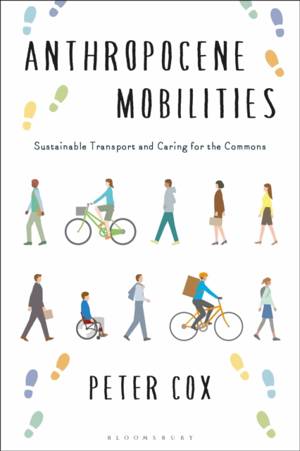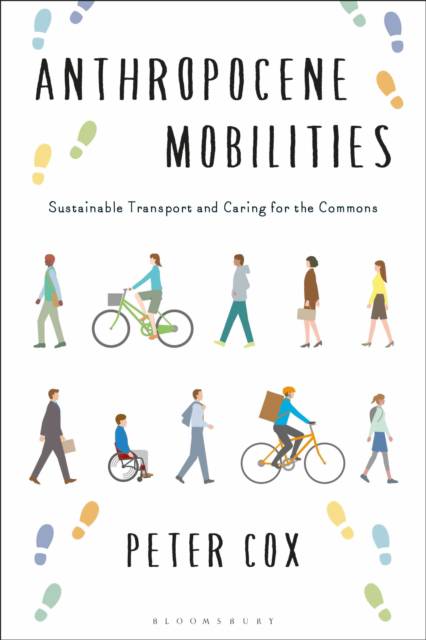
Bedankt voor het vertrouwen het afgelopen jaar! Om jou te bedanken bieden we GRATIS verzending (in België) aan op alles gedurende de hele maand januari.
- Afhalen na 1 uur in een winkel met voorraad
- In januari gratis thuislevering in België
- Ruim aanbod met 7 miljoen producten
Bedankt voor het vertrouwen het afgelopen jaar! Om jou te bedanken bieden we GRATIS verzending (in België) aan op alles gedurende de hele maand januari.
- Afhalen na 1 uur in een winkel met voorraad
- In januari gratis thuislevering in België
- Ruim aanbod met 7 miljoen producten
Zoeken
€ 152,95
+ 305 punten
Uitvoering
Omschrijving
Sustainable travel expert Peter Cox shows how individual choices about how to move from one place to another shape the ways we relate to the world and to each other, and in turn, how all this shapes us as people and ultimately affects worldwide problems. If we regularly opt for more physically active forms of transport, such as cycling or walking, we foster qualities needed for living less destructively: we foster good anthropocene citizenship, a way of being in the contemporary world that includes responsibility for the consequences of our actions and responsiveness to the changing needs we encounter. This has important knock-on effects on a global scale: it helps to combat climate change, poor global health, and widespread social inequality, all of which are significantly impacted by the everyday travel habits of ordinary people, and particularly those in the Global North.
For its emphasis on the personal impacts of individual transport decisions and their relations to global social and environmental instability, Anthropocene Mobilitiesis ideal for students and informed readers eager to contribute to positive change in the world. For its novel application of Hartmut Rosa's theories to the field of mobilities studies, and for its developments of the concepts of anthropocene citizenshipand mobile anthropocene citizens, it is also a must-read for scholars of international development, sociology, and environmental studies.
For its emphasis on the personal impacts of individual transport decisions and their relations to global social and environmental instability, Anthropocene Mobilitiesis ideal for students and informed readers eager to contribute to positive change in the world. For its novel application of Hartmut Rosa's theories to the field of mobilities studies, and for its developments of the concepts of anthropocene citizenshipand mobile anthropocene citizens, it is also a must-read for scholars of international development, sociology, and environmental studies.
Specificaties
Betrokkenen
- Auteur(s):
- Uitgeverij:
Inhoud
- Aantal bladzijden:
- 216
- Taal:
- Engels
Eigenschappen
- Productcode (EAN):
- 9781350464742
- Verschijningsdatum:
- 24/07/2025
- Uitvoering:
- Hardcover
- Formaat:
- Genaaid
- Afmetingen:
- 156 mm x 234 mm
- Gewicht:
- 480 g

Alleen bij Standaard Boekhandel
+ 305 punten op je klantenkaart van Standaard Boekhandel
Beoordelingen
We publiceren alleen reviews die voldoen aan de voorwaarden voor reviews. Bekijk onze voorwaarden voor reviews.









